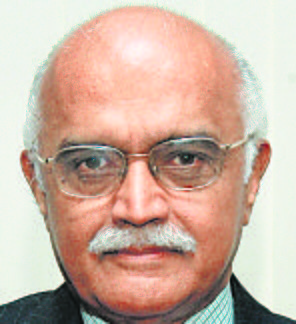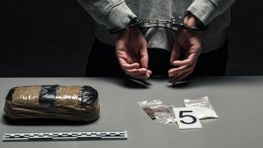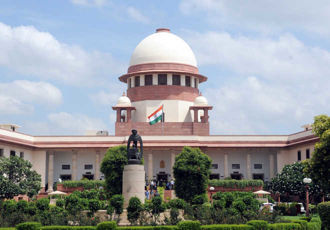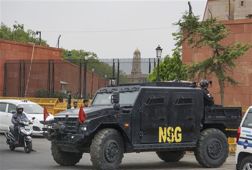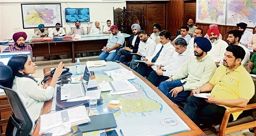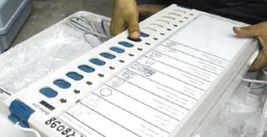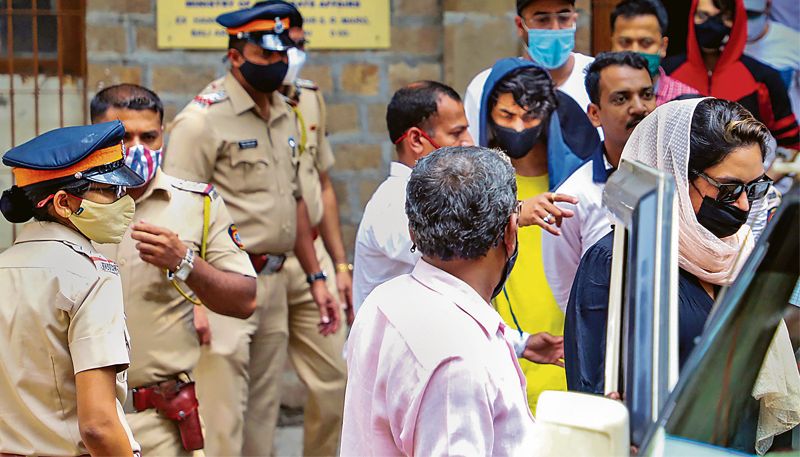
BIAS: The NCB has been accused of going after soft targets such as film actors. - File photo
Vappala Balachandran
Author and Columnist
Maharashtra minister Nawab Mallik’s main complaint against the Narcotics Control Bureau (NCB) was that the local police were doing much more work by detecting drug cases than the NCB, which, according to him, was indulging in theatrics by raiding soft targets with high visibility such as Bollywood stars and foisting petty cases.
A question answered in Parliament by Minister of State Nityanand Rai on July 20 had confirmed that NCB, through its 13 zonal offices, could detect only 385 cases in 2019 under Narcotic Drugs and Psychotropic Substances (NDPS) Act, 1985, whereas our police forces had registered 72,779 cases during that year. The question is, why then do we need the NCB?
The first reason is the Central government’s responsibility under Article 47 of the Constitution to improve public health by prohibiting consumption of drugs injurious to health. The second is our international obligations towards the 1961 UN “Single Convention on Narcotic Drugs”, UN 1972 Protocol and the 1988 convention by detecting illicit transnational movement of drugs and implementing the provisions within our territory.
The NCB was created in 1986 as a coordinating agency to monitor enforcement, the powers of which were scattered in the 1860 Indian Penal Code, 1940 Drugs & Cosmetics Act, 1962 Customs Act and the NDPS Act and enforced by a plethora of agencies like the police, Customs, BSF, Coast Guard and Sashastra Seema Bal.
This being so, was the NCB able to meet its international obligations by closely coordinating with domestic agencies and enforcing the law themselves with better skill, as is expected of it, to meet the dynamic pattern of global illicit drug trade?
International drug supply to Bollywood was alleged when Sushant Singh Rajput committed suicide in 2020 after which they arrested Rhea Chakraborty for procuring drugs. During NCB Director Rakesh Asthana’s well-noticed visit to Mumbai, a national daily published a report on October 23, 2020, that Bollywood had obtained illicit drugs through international cartels.
A similar plea was advanced by the NCB to the court on October 13, 2021, that the “drug rave” party on board the luxury liner Cordelia Empress on October 2, 2021, “might have used international linkages” for illicit drug procurement. This was ignored by the Bombay High Court on November 20, 2021, while confirming bail to Aryan Khan, son of “Bollywood” superstar Shah Rukh Khan.
Meanwhile, the international dimensions of illicit drug supply assumed menacing proportions. Even in 1998, a United Nations Office on Drugs and Crime (UNODC) paper had estimated the volume of illicit international drug trade as $500-1000 billion, nearly 8% of international trade, “approximately the same size as the international trade in textiles (7.5 per cent), oil and gas (8.6 per cent)”. The global turnover of all pharmaceutical companies was only $233 billion in 1993. The world’s largest single consumer of illicit drugs was the US “with some 12.8 million current drug abusers out of a total population of 260 million in 1995”.
In 1993, the ‘free on board’ price of heroin in Pakistan was $3.3 per gram. When it reached Western Europe after refinement in Pakistan/India, it became $130 with 40% purity. Joint India-Pakistan crime syndicates used to ship heroin and Mandrax concealed in rice bags through Indian and Pakistani ports to West Africa, then to South Africa from where it used to find its way to Western Europe and North America. The gargantuan profits in drug trade had spurred an international network of crime syndicates, political corruption and human rights abuses.
The UNODC’s ‘Global Overview’ for 2021 indicates a changed pattern by using more synthetic drugs and non-medical use of pharmaceutical narcotics along with plant-based substances resulting in 494,000 global deaths and 30.9 million years of “healthy life lost” (2019). Increased digital connectivity has brought about innovations in global supply chains by way of “mailbox”, “dead drops” or small courier services. "Research chemicals” or “customised synthesis” are delivered using crypto currencies and “dark web”.
The NCB should have been worried when US President Donald Trump “determined” on September 17, 2020 under the Foreign Relations Authorisation Act, 2003 identifying India among 20 countries as “major drug transit or illicit drug producing countries”. The US State Department’s (Bureau of International Narcotics & Law Enforcement) report in March 2021 confirms adverse remarks about India. Drug overdose deaths in America rose from 72,000 in 2019 to 81,000 in 2020, with more than half attributed to non-prescription synthetic opioids.
The report said that “billions of tablets of trafficked pharmaceutical opioids originating in India have been seized worldwide” sent through online pharmacies, “dark websites” or call centres. Drug trade dealers had shifted to India as a new source for precursor chemicals. Multi-tonne shipments of precursor materials from India were shipped to Africa and Mexico. “Commercial business-to-business websites registered in India include numerous vendors advertising a range of drugs, including fentanyl and fentanyl analogues”.
While it is true that the NCB had earned UNODC’s appreciation at the regional office for South Asia (ROSA) for its initiatives, much more needs to be done to meet international expectations from India.
First, the US report observes that despite commitment, Indian investigators are hamstrung by “inadequate training, insufficient equipment, staffing gaps and interagency coordination challenges” to “conduct complex investigations of criminal drug manufacturing and trafficking”.
Second, the 2016 UN special session had called on countries “to support alternatives to incarceration and proportionate sentencing, especially for drug dependent, non-violent offenders”. Other countries are declaring drug addicts as victims and not as criminals.
On December 1, 2021, The New York Times reported that New York City had opened two ‘supervised injection sites’ of street drugs injections which had, without medical supervision, resulted in a death every four hours in 2020, according to Dr Dave Choksi, the city’s health commissioner.
This needs special emphasis since the NCB is accused of chasing cases with 2-gm possession on high visibility raids on ‘soft targets’, reminding us of the 1960-1970 ‘prohibition’ days. If we implement the UN special session resolution on alternative remedies, it will go a long way in reducing the load on our courts.
Join Whatsapp Channel of The Tribune for latest updates.






